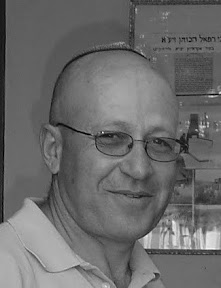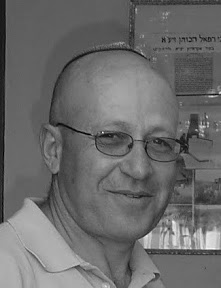 |
| Julian Resnick |
My relationship with Israel goes back a long way. As I write this from my temporary home in the Upper East Side of Manhattan, Somerset West seems a long way away (it is) and 1967 seems like deep history (in some way it is). And yet, the path I have travelled is largely because of the place that Israel has had in my life for a very long time.
My earliest memories of myself are very much connected to my experiences as a young Jewish boy growing up in a country community, where belonging was the name of the game. The names which spring to mind immediately when I think of the people who surrounded me are Posel, Levine, Ginsburg, Goodman, Miller, Teperson, Buch and Sibul. My world revolved around family and sport (my PT teacher, Abe Notnagel, played fullback for Somerset West Rugby club and Western Province, when Lionel Wilson was injured). I was very much of that place and yet was so clearly not of that place.
But, unlike many of my peers, there was something else in my life from early on: a great passion for Zionism and Israel. Perhaps because my family was so committed, perhaps because Habonim and my extraordinary madrichim opened up a world of intellectual and emotional opportunities which small town South Africa of the 1960s did not offer?
Fast forward to early January, just a few weeks ago, to the members’ clubhouse of my home on Kibbutz Tzora: an email had gone out to a list of ex-South Africans living in Israel who had once worn the blue shirt f Habonim Dror before making aliyah. The reason for the email? A growing feel of unease at the direction Israeli society has been taking in recent years. Why get together a few weeks ago and not sooner? One could argue, legitimately, that many things have changed over the years in Israel and that the Israel we dreamed of is not the Israel we live in today.
“We are fearful”
So why the amazing response of over 200 ex-members of Habonim South Africa (and a few ex-Betarim as they bravely pointed out to us)? What brought olim for the 40s, the 50s, the 60s up until a chavera who came on aliyah last year, together? I will say it in a way which cannot be misunderstood: we got together because we are fearful. We are fearful that the unimaginable might be happening in Israeli society and we as ex-South Africans might just be on the brink of living through, twice in our lives, a regime based on racial discrimination and separate development. It is painful for me to even think of putting the “A” word down on to paper. But it could just become our reality if we do not take action now.
Israel is in great existential danger. The love of my life is standing on the edge of being transformed and reformed beyond recognition. The Jewish world has been wonderful over the 62 years of the existence of Israel, in that it has rallied together at the moments of greatest despair.
I remember giving all of my barmitzvah money to the UIA appeal after the Six Day War; in 1973 after Habonim machaneh a whole group of us madrichim flew to Israel to volunteer to help Israel get through the aftermath of the awful pain which was the Yom Kippur War. Will the Jewish world rise to the occasion again? When the
existential danger is not as clear to all to see, will the Jewish world even understand?
Approaching the abyss
We were brought together a few weeks ago on Kibbutz Tzora because we see that those who rule us, legitimately, as they were elected by us, do not seem to be aware of the abyss next to which we are standing. The inequality of minorities in Israel; the lack of respect for the principles of civil rights when it comes to the Arab population of the West Bank, are tearing away at the moral core of Israeli society. But, as
ex-South Africans, there is something else happening which is even more frightening: we are developing an ability which was so typical of the South African experience and which troubled most of us who lived through apartheid. We are developing the ability to not see what is going on because, well, you know it as well as I do, because life is basically good, if one does not look too closely.
Many Jewish leaders in the Diaspora will tell you that you should only speak up when you are in Israel, and outside of Israel you should support the country. I disagree with them. Let me be clear: the most important support you can give to Israel right now is to make it clear to the present leadership that you will not collaborate with their behaviour. That you care too much about what Israel means to all of us as Jews to allow them to bring it to the edge of the abyss.
That is the Zionism I learned when I was a little boy growing up in Somerset West, playing badminton in the Menorah Hall and dancing around the bimah on Simchat Torah, hoping that Harry Groll would give me an extra
chocolate as I waved my Israeli flag.
Julian Resnick grew up in Somerset West and in Habonim, and has lived in Israel since 1976. He has worked in Jewish education for over 30 years and is currently serving as Central Shaliach to Habonim Dror North America. He is also the owner of a niche Jewish travel company, Jewish Journeys (www.jewishjourneys.info) and can be contacted on resnicj@gmail.com.











